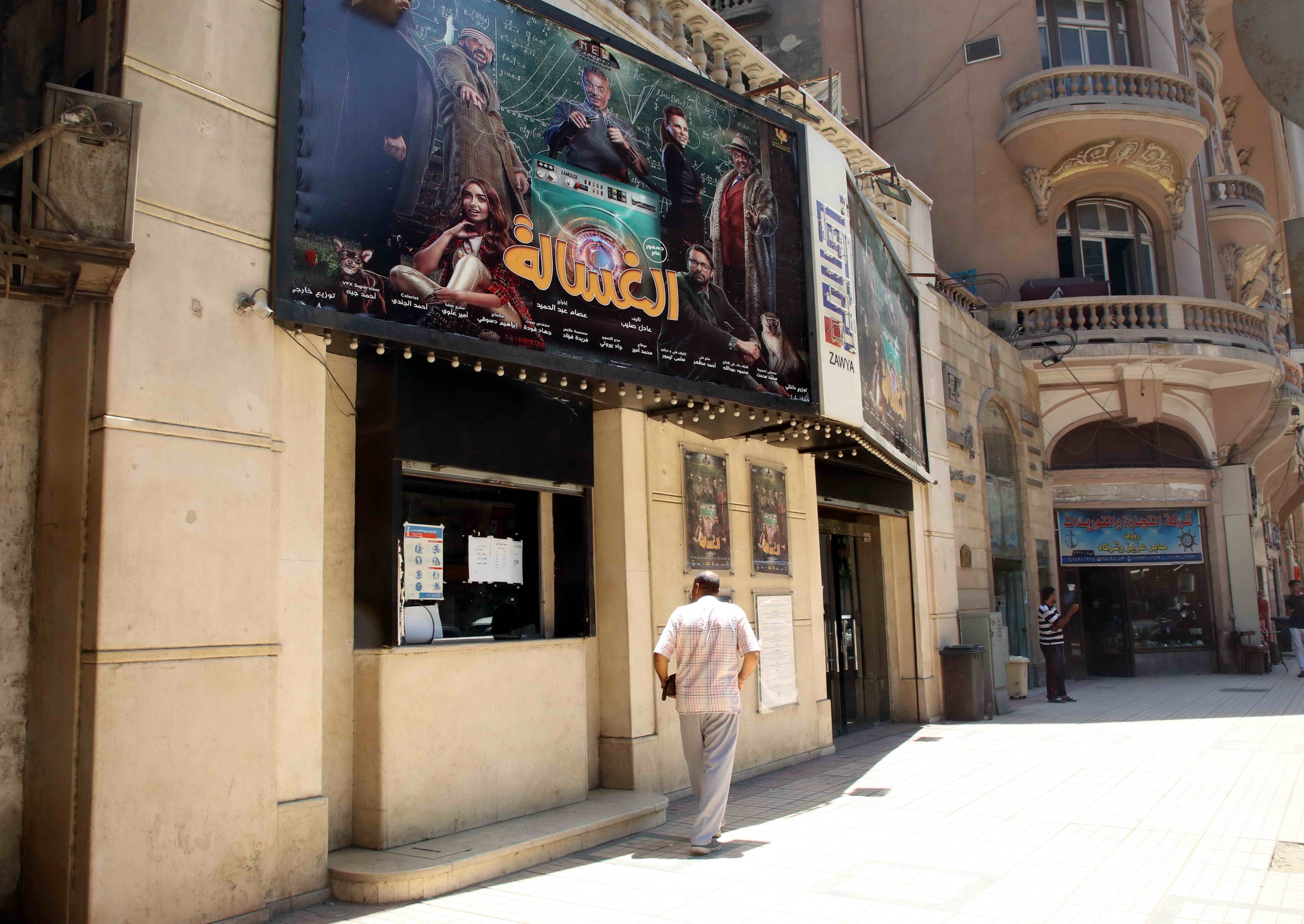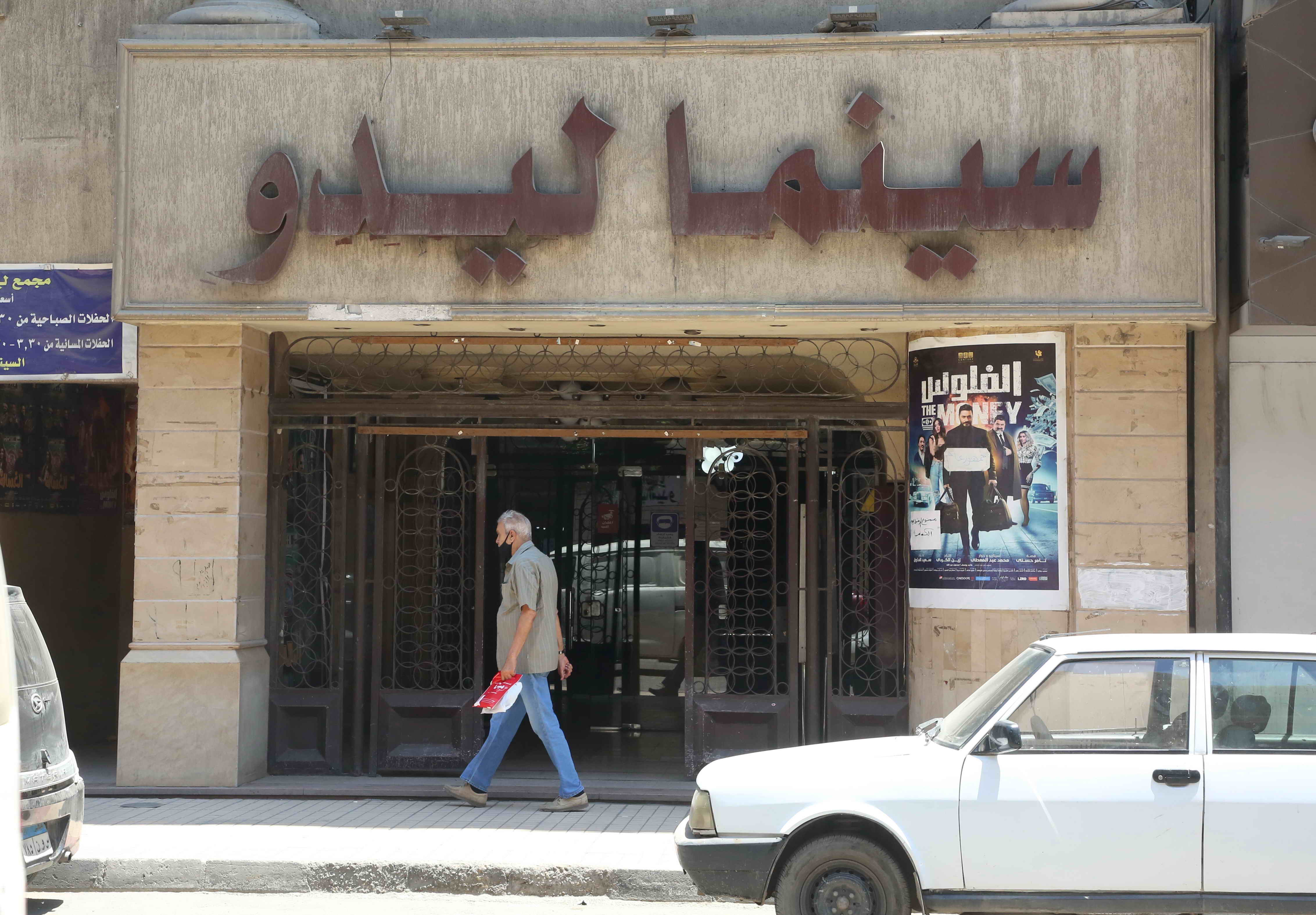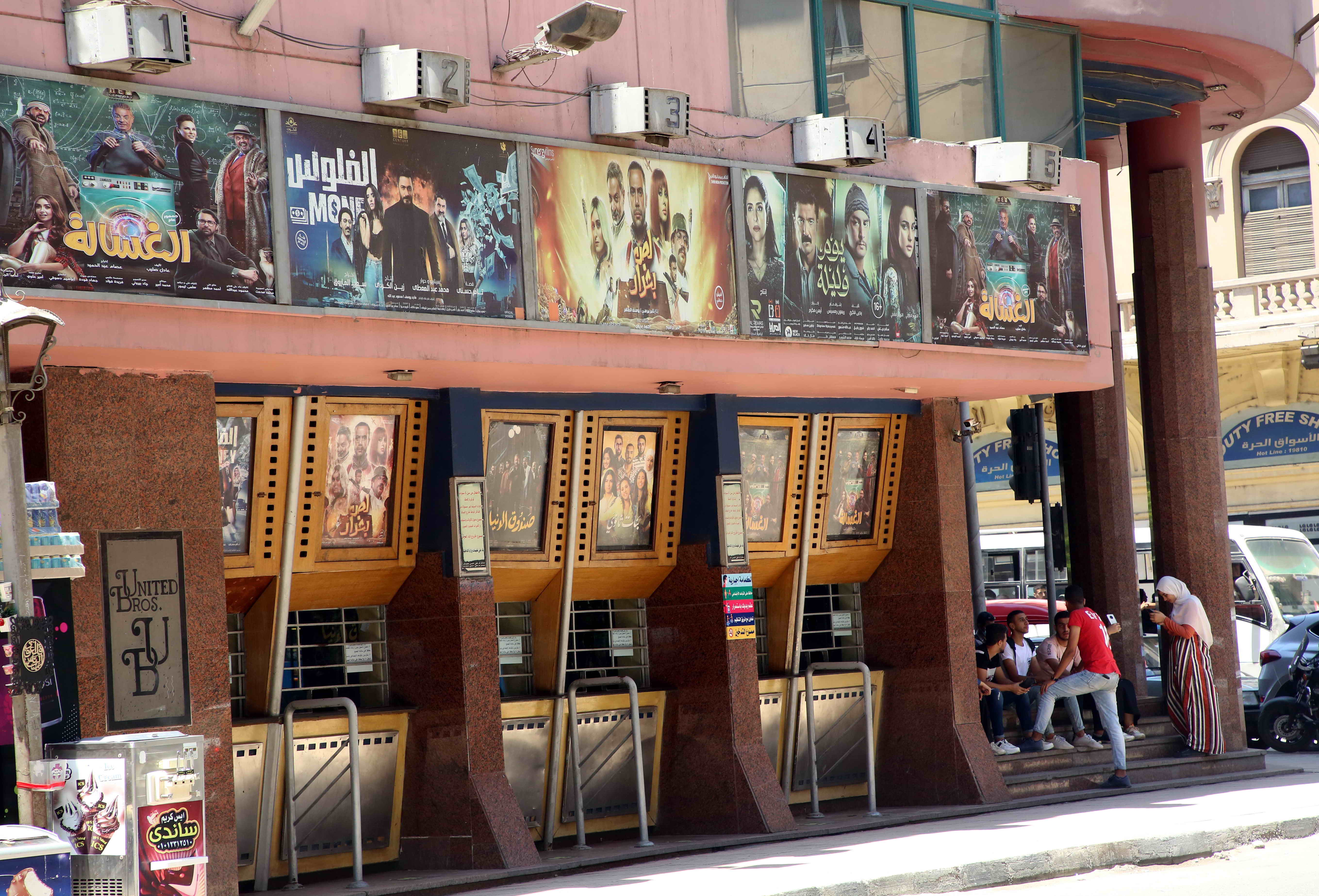Coronavirus shatters Egypt's cinema industry with job losses and changing public attitude

Actress Salwa Mohamed Ali has been out of work since March and expects to remain so for many months to come.
That is not due to a lack of trying. She has been contacting producers and directors, asking about potential roles and possible film projects.
"Nobody is ready to take on the risk of putting money into cinema projects and ending up losing [their investment]," Ali told Middle East Eye. "And this is depriving all artists of work."
Most of Ali's colleagues, including many of the nation's cinema stars, are also staying at home.
The collapse of actors' work prospects is linked to the tough measures deployed by the Egyptian authorities to help curb the spread of coronavirus, which has killed more than 3,000 people in the country, including at least one prominent member of the cinema industry.
New MEE newsletter: Jerusalem Dispatch
Sign up to get the latest insights and analysis on Israel-Palestine, alongside Turkey Unpacked and other MEE newsletters
'I have been affected very badly by the [coronavirus] crisis, both financially and professionally'
- Salwa Ali, Egyptian actress
The measures, which started in March, included the nationwide closure of cinemas and other cultural institutions such as theatres, as well as the cancellation of all cultural events.
Such restrictions have devastated the national cinema industry and led to hundreds of thousands of job losses.
"The Covid-19 crisis has had deep effects on the cinema industry because of the closure of the cinemas," leading film critic Khairia al-Beshlawi told MEE. "Producers are also afraid to take the risk of making new films."
The local film business is labour intensive, with more than half a million Egyptians working in the industry, including - apart from actors and actresses like Ali - professionals who work for the nation's 400 cinema production companies and agencies.
Egypt has been working hard to contain the Covid-19 outbreak, and there has been a noticeable drop in daily infections and fatalities, but there are fears of a second wave of the disease.
On 29 July, Prime Minister Mustafa Madbouli said his government would have to reimpose drastic measures if the number of daily infections rose again.
Economic devastation
The pandemic has cost Egypt dearly in economic terms - and filmmaking stands right in the centre of this economic devastation.
The closure of cinemas in March deprived film producers and cinema owners of the profits that normally come with the Orthodox Easter holidays and Eid al-Fitr, which marks the end of the Islamic month of Ramadan.
The two occasions usually bring in major earnings for the industry, with millions of people celebrating by going out and watching new films.
The authorities reopened the cinemas in mid-May, but only at 25 percent capacity. Even then, few of the nation's cinemas were able to attract enough film-goers to fill the permitted quarter of their seats.
The dire state of the industry was most apparent during the Eid al-Adha (Feast of Sacrifice), another important occasion for cinema-going.
Only one new film - the comedyWashing Machine (Al-Ghassalah in Arabic), based on the idea of an automatic washer turning into a time machine - was screened during the four-day religious occasion, which ended earlier in August.
The film's revenues during Eid al-Adha amounted to just 4.5 million Egyptian pounds (roughly $272,000).
Two older films, namely the romance Money and the comedy Thief of Baghdad, were also screened during the feast, in their producers' bid to compensate for some of the losses of the past months.
However, the revenues of the two films combined during Eid al-Adha did not exceed the equivalent of $6,000, according to local media.
Alternative platforms
While most producers are not at present screening their films in cinemas, preferring to wait for the pandemic to end, some have shown their new work on other platforms, such as the Arabic streaming service Shahid VIP. This gives viewers paid access to new Arabic content, even before the same films premiere at traditional cinemas.
This trend provides some insights into how filmmakers in Egypt are coping with the pandemic and trying to reduce their losses, cinema critics said.
"The producers view these new platforms as a way of avoiding losses and making some profits," film producer Remon Magar told MEE. "They know that nobody will go to the cinemas now."
The Chamber of Cinema Industry, an independent guild of filmmakers, revealed on 8 July that it had addressed the cabinet about the need to raise the number of audiences to 50 percent of the cinemas' capacity.
Most producers now prefer to delay the screening of their new films, chamber head Hesham Abdel Khaliq said. Only old films are being shown at cinemas, which is another reason why they have failed to sell more tickets, he said.
Dashed hopes
Even before the coronavirus pandemic, Egypt's cinema industry was suffering.
In 2019, the country produced 33 films, a small fraction of the numbers churned out in India (1,813 films) and Nigeria (997 films) - the world's top two film industries - in the same year.
According to an unpublished study by a local think-tank, the Egyptian Centre for Economic Studies (ECES), the number of films produced in the country in 2019 was almost half the number produced in 1946 (67 films).
The peak of cinema production in Egypt was in 1986, when 96 films were produced. In 2015, the country produced only 24 films.
In 2019, the revenues of the nation's cinemas reached about $72bn. This year, the nation's producers do not even dream of achieving 10 percent of this figure.
Apart from revenue loss, the Covid-19 crisis has hindered efforts by the new generation of filmmakers to rescue the national cinema industry.
This industry is of paramount importance for Egypt, a country that partly owes its cultural supremacy in the Arab region to its films and arts.
Known as the Hollywood of the East, Egypt used to be a meeting point for singing and acting talent from every part of the Arab region, and Egyptian films had been hugely popular in Arab countries for decades.
The decline of the cinema industry began in the 1980s, when the government stopped financial sponsorship for cinema production, giving rise to purely commercial production, a trend that slowly contributed to the fading of filmmaking and consequently public tastes for movies.
Budding directors such as Raouf Abdel Aziz worked hard to produce good films with the limited financial resources they had, but the pandemic brought these efforts to a screeching halt.
"Despite this, the new generation of cinema directors is capable of getting the industry out of its predicament once the current crisis ends," Abdel Aziz told MEE.
Calling for help
The closure of cinemas in March caused them to incur around about $16.4m of losses in expected revenues from the selling of film tickets, according to the study by the ECES research centre.
The Egyptian treasury, meanwhile, lost over $17.4m in taxes on these tickets, the centre said in a study it released on 10 June.
In human terms, local cinema production companies have had to lay off over 60 percent of their workers (around 300,000) because of the coronavirus–induced recession.
Faced with this collapse, the centre has called on the authorities to step in to rescue the industry with moves such as abolishing taxes on cinema tickets and production companies, absolving cinemas of electricity and water bills and offering production companies loans with easy terms.
Ali, who has played the role of "the mother" in dozens of TV and film productions, is following all the developments closely and doesn't look forward to staying at home much longer.
She says she's been burning through her savings during the past four months and does not know how long she can keep it up.
"I have been affected very badly by the crisis, both financially and professionally," Ali said.
"This is not about me only, but also about hundreds of thousands of others working in this industry."
Middle East Eye delivers independent and unrivalled coverage and analysis of the Middle East, North Africa and beyond. To learn more about republishing this content and the associated fees, please fill out this form. More about MEE can be found here.









